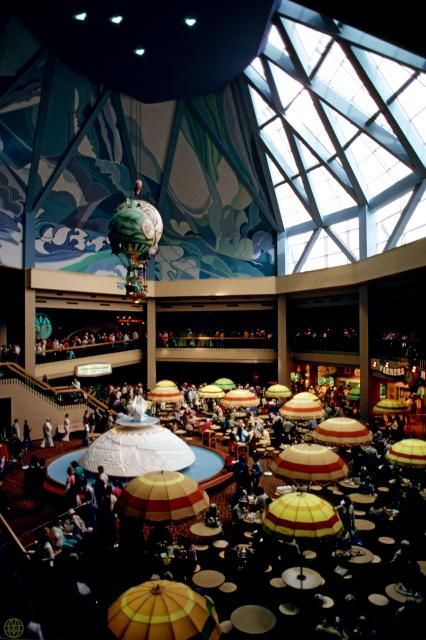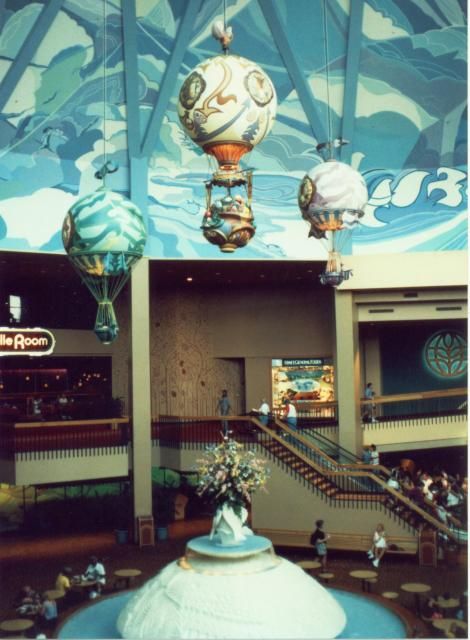Omnispace
Well-Known Member
Following Eddie Sotto's suggestion on his (now closed) thread here I bought and read Marty Sklar's book "Dream It! Do It!". There are some very interesting insights into how the company has changed with regards to how the parks are handled. According to Marty, Walt Disney wanted Park Operations and Imagineering to be on an equal footing. Walt felt that the working relationship between the two disciplines (that is... battling it out over what is important) would result in a superior solution than if either one had the say.
Using The Land as an example, Ops would say that they need more seating for the food court, Imagineering would say that they need room for a nice fountain. Both are valid, arguable points, but it's finding the correct balance that's the goal. To expand that notion, the same can be said for keeping an attraction or a restaurant open. Operations may say that it makes sense to close things that are not generating revenue but it's the more show-oriented Imagineering types that consider that a shuttered show or attraction sends the wrong message to guests and diminishes the experience. Saying that the park still pulls in the crowds despite all this would be Operations' counter-argument.
Things changed within the company though. Eisner reorganized the departments and Operations now calls the shots on what happens with the parks -- Imagineering is a "contractor" to do their bidding. If Ops wants a new food court with more seating then WDI designs the best they can within the program they are given. I think the issues that people have been noticing with the parks, especially for those who have been visiting for a long time, are because there is no particular creative force that is governing how these parks evolve. Operations can order-up five top-notch shows for a park but that can all be defeated by their inappropriate theme or lack of context. And of all the parks, Epcot perhaps relies on a cohesive theme the most.
I realize this explanation oversimplifies it a bit. There are a multitude of factors that are at play with what happens at Epcot, including input from sponsors. But when someone who has been visiting the park for a long time and has learned to appreciate all it's nuances says that experience is now diminished, I would tend to believe them.
In his book, Marty did a thorough job describing the amazing development process that EPCOT Center went through. Unfortunately, he doesn't directly discuss how the park has evolved since then other than to praise those who have lent their creative expertise. Because of his heavy involvement it would be interesting to get his viewpoint -- if he feels that Epcot is still consistent with the ambitions of it's original premise or if it is on a straying course that needs to be corrected.
Using The Land as an example, Ops would say that they need more seating for the food court, Imagineering would say that they need room for a nice fountain. Both are valid, arguable points, but it's finding the correct balance that's the goal. To expand that notion, the same can be said for keeping an attraction or a restaurant open. Operations may say that it makes sense to close things that are not generating revenue but it's the more show-oriented Imagineering types that consider that a shuttered show or attraction sends the wrong message to guests and diminishes the experience. Saying that the park still pulls in the crowds despite all this would be Operations' counter-argument.
Things changed within the company though. Eisner reorganized the departments and Operations now calls the shots on what happens with the parks -- Imagineering is a "contractor" to do their bidding. If Ops wants a new food court with more seating then WDI designs the best they can within the program they are given. I think the issues that people have been noticing with the parks, especially for those who have been visiting for a long time, are because there is no particular creative force that is governing how these parks evolve. Operations can order-up five top-notch shows for a park but that can all be defeated by their inappropriate theme or lack of context. And of all the parks, Epcot perhaps relies on a cohesive theme the most.
I realize this explanation oversimplifies it a bit. There are a multitude of factors that are at play with what happens at Epcot, including input from sponsors. But when someone who has been visiting the park for a long time and has learned to appreciate all it's nuances says that experience is now diminished, I would tend to believe them.
In his book, Marty did a thorough job describing the amazing development process that EPCOT Center went through. Unfortunately, he doesn't directly discuss how the park has evolved since then other than to praise those who have lent their creative expertise. Because of his heavy involvement it would be interesting to get his viewpoint -- if he feels that Epcot is still consistent with the ambitions of it's original premise or if it is on a straying course that needs to be corrected.
Last edited:

 ..I never see any of these things..
..I never see any of these things.. ....Maybe I'am not looking hard enough...Maybe I'am enjoying the magic that surrounds me..I hope I never come across all these sad things that you've encountered.
....Maybe I'am not looking hard enough...Maybe I'am enjoying the magic that surrounds me..I hope I never come across all these sad things that you've encountered. ..I'd be heading off somewhere else on my next vacation....
..I'd be heading off somewhere else on my next vacation.... ...
...


